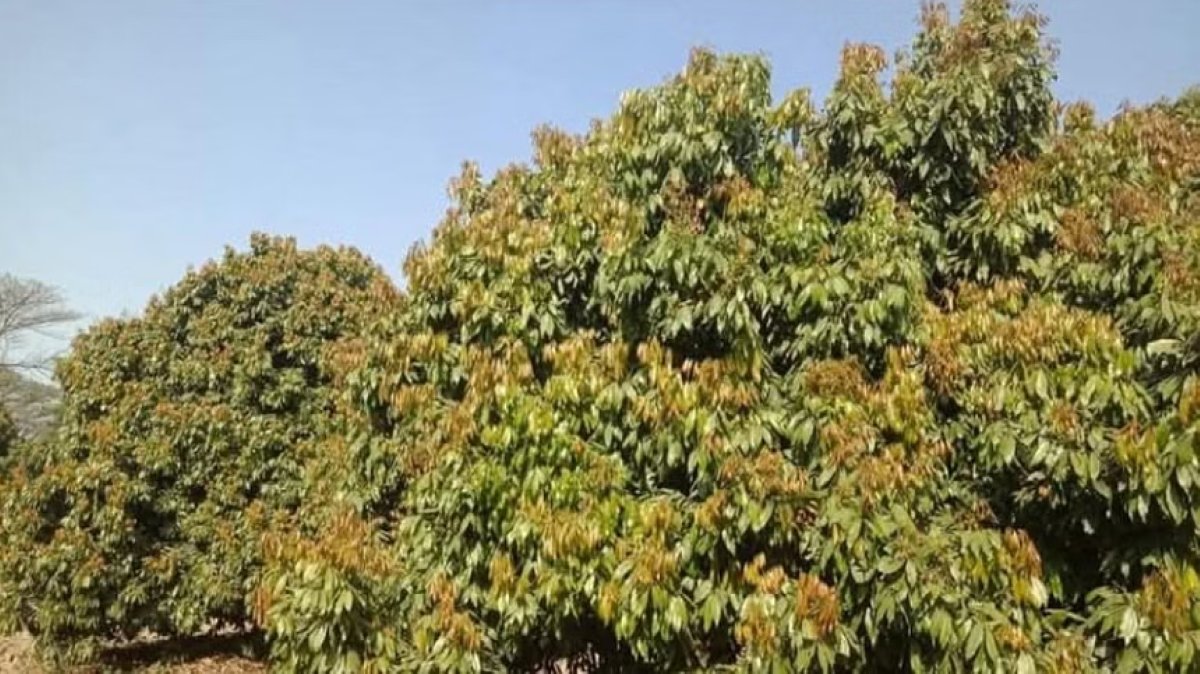With the arrival of the Bangla month of Falgun, litchi trees have begun to bloom. However, litchi growers in Ishwardi upazila of Pabna are expressing concern, as this year, the trees have produced more new leaves than buds, which is likely to result in lower production of the popular summer fruit.
Farmers report that nearly 70-80% of litchi trees have developed new leaves instead of buds—an unprecedented phenomenon in the region. Many growers say they have never experienced such a large-scale decline in fruit production before.
Agricultural officials have yet to determine the exact cause of the reduced bloom, though they suspect that climate change could be a contributing factor.
According to data from the Department of Agricultural Extension in Pabna, litchi is cultivated across approximately 4,000 hectares in the district, with Ishwardi upazila alone accounting for 3,100 hectares.
Shajahan Ali Badsha, a prominent litchi grower in Ishwardi, said that out of his 600 litchi trees, only around 120-150 have produced buds, while the majority have sprouted new leaves instead.
“In the last 40 years, I have never seen anything like this. Usually, 50-60% of the trees bear fruit, but this year, only about 20-25% are expected to be productive,” he stated.
“Litchi growers in Ishwardi generate around Tk 2,000 crore in revenue every season, but this year, business could suffer significantly due to low production,” he added.
The poor bloom has also alarmed traders, who fear heavy financial losses.
“I purchased 200 litchi trees for Tk 5 lakh—much higher than last year’s cost. If production declines, I will face significant losses,” said Md Mirajul Islam, a seasonal litchi trader.
Md Rakibul Islam, another farmer and trader, echoed similar concerns.
Speaking on the matter, Mita Sarkar, the upazila agriculture officer in Ishwardi, stated, “We are not yet certain why so many trees are growing new leaves instead of budding. Climate change could be a possible factor. We are closely monitoring the situation and will assess litchi production once the blooming period concludes.”
Supplementary Information:
Litchi is a highly seasonal fruit, and any disruption in its production can significantly impact both farmers and traders. Climate variations, changes in rainfall patterns, and temperature fluctuations are known to affect fruit-bearing trees. In recent years, unseasonal heat and erratic weather conditions have posed challenges for fruit growers in Bangladesh. Experts suggest that improved farming techniques, soil health management, and climate-resilient practices may help mitigate such issues in the future.
